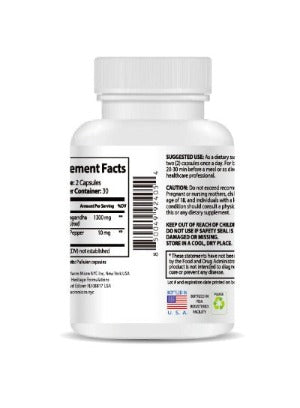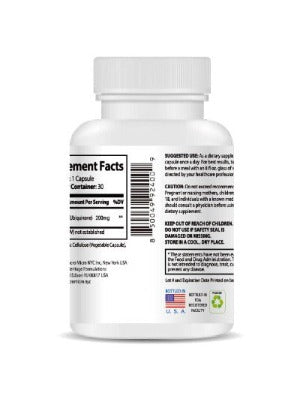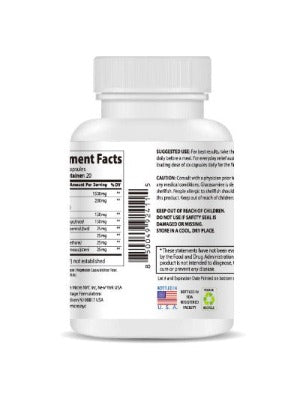Do you end your day with that all-too-familiar feeling? Your eyes feel sandy, tired, and achy. Maybe they burn, or your vision has become a little blurry after hours spent staring at a screen. You reach for artificial tears, hoping for a moment of relief, but the dryness always seems to return. If this sounds like your daily reality, you are not alone. In our digital age, Dry Eye Syndrome has become a silent epidemic, affecting millions who dismiss their discomfort as simple eye strain.
While modern life—with its constant exposure to screens, air conditioning, and contact lenses—certainly contributes to the problem, the solution may not be found in a bottle of eye drops. True, lasting relief often requires a deeper, more holistic approach. This is where the ancient wisdom of Traditional Chinese Medicine (TCM) offers profound insight. TCM views the body as an interconnected system where symptoms like dry eyes are not just a localized issue, but a reflection of a deeper internal imbalance.
To guide us on this path to natural eye wellness, we turn to the expertise of Dr. Jesse Huang, a distinguished US-based TCM practitioner and a third-generation descendant of Chinese imperial court physicians. According to Dr. Huang, restoring moisture to your eyes isn’t about temporary fixes; it’s about nourishing your body from the inside out. And one of the most accessible and effective ways to do this is through the gentle power of herbal teas.
In this guide, we will explore four specific herbal teas recommended by Dr. Huang to combat dryness, soothe irritation, and bring comfort back to your precious eyes.
The TCM View: Why Your Eyes Are a Window to Your Inner Health
Before we dive into the recipes, it’s helpful to understand the TCM philosophy behind them. In TCM, the health of your eyes is intricately linked to the function of your Liver and Kidney organ systems. Think of it this way: the Liver is responsible for storing and regulating Blood, a vital substance that nourishes every part of your body, especially the eyes. The Kidneys store "Essence" (Jing), the foundational energy that supports all bodily functions, including the production of nourishing fluids (Yin).
When these systems are in balance, your eyes are bright, clear, and well-moistened. However, factors like aging, chronic stress, poor diet, and—most relevantly today—overuse of the eyes can deplete these vital resources. An ancient TCM principle states, "prolonged looking injures the blood" (久視傷血). Staring at screens for hours on end literally drains the nourishing Blood and Yin that your eyes depend on.
This leads to a state of "Liver Yin Deficiency" or "Kidney Yin Deficiency," which is the root cause of Dry Eye Syndrome from a TCM perspective. Your body simply lacks the fundamental fluids to keep your eyes properly lubricated. It’s like a plant with withering leaves; you can spray the leaves with water for temporary relief, but to truly revive it, you must water the roots. These herbal teas are designed to do just that—water your body’s roots.
Four Essential Herbal Teas for Eye Hydration
Dr. Huang recommends these simple, effective herbal teas to replenish your body's Yin and Blood, directly targeting the root cause of dry eyes.
1. The Classic Soother: Goji Berry and Chrysanthemum Tea (枸杞菊花茶)
This is perhaps the most famous TCM combination for eye health, and for good reason. It’s a gentle yet powerful duo that addresses several common eye complaints.
-
The Ingredients and Their Benefits:
-
oji Berries (Gou Qi Zi): These little red gems are a superfood in the world of TCM. They are renowned for their ability to nourish the Liver and Kidney Yin, replenish Essence, and brighten the eyes. They help build back the foundational fluids that have been depleted.
-
Chrysanthemum Flowers (Ju Hua): While goji berries nourish from within, chrysanthemum works to soothe from the outside. It is excellent for clearing "Liver Fire" and "Wind-Heat," which manifest as redness, itchiness, and irritation.
-
Who It's For: This tea is perfect for anyone experiencing general eye fatigue, redness, and dryness from long hours of work or study. It’s a fantastic daily preventative tea for office workers and students.
-
-
How to Brew: Steep 1 tablespoon of dried goji berries and 1 teaspoon of dried chrysanthemum flowers in a mug of hot water for 5-10 minutes. The goji berries will become plump and soft; you can eat them after finishing the tea for an extra nutritional boost.
2. The Deep Hydrator: Cassia Seed and Dendrobium Tea (決明子石斛茶)
For those whose dryness feels more persistent and is accompanied by blurry vision, this combination offers a more intensive level of fluid generation.
-
The Ingredients and Their Benefits:
-
Cassia Seeds (Jue Ming Zi): The name of this herb literally translates to "vision-brightening seed." It’s traditionally used to clear heat from the Liver and improve sight.
Dendrobium (Shi Hu): This is a prized and powerful Yin tonic in TCM. Dr. Huang highlights its exceptional ability to generate fluids and moisten dryness throughout the body. It’s like a deep drink of water for your internal systems.
Who It's For: This tea is ideal for individuals with moderate to severe dry eye symptoms, including significant dryness upon waking, blurry vision that fluctuates, and a constant feeling of grit in the eyes.
-
-
How to Brew: Lightly toast 1 tablespoon of cassia seeds in a dry pan until fragrant. Add the toasted seeds and 2-3 small pieces of dried dendrobium to a pot with 2 cups of water. Bring to a boil, then simmer for 15-20 minutes. Strain and drink warm.
3. The Blood Builder: Mulberry and Goji Berry Tea (桑椹枸杞茶)
If your eye fatigue is part of a bigger picture of general exhaustion and a pale complexion, this delicious and deeply nourishing tea is an excellent choice.
-
The Ingredients and Their Benefits:
-
Mulberries (Sang Shen): These dark, sweet berries are a fantastic tonic for both Blood and Yin. They help to address the "blood deficiency" that results from overusing the eyes, restoring richness and vitality.
-
Goji Berries (Gou Qi Zi): Paired with mulberries, goji berries enhance the tea's ability to nourish the Liver and Kidneys, creating a comprehensive formula for rejuvenation.
-
-
Who It's For: This tea is perfect for those who not only have dry eyes but also feel generally run down, perhaps with symptoms like dizziness, floaters in their vision, or insomnia. As Dr. Huang notes, it's also wonderfully pleasant to drink.
How to Brew: Combine 1 tablespoon of dried mulberries and 1 tablespoon of goji berries in a mug. Pour hot water over them and let them steep for 10-15 minutes. The berries will rehydrate and release their sweet, nourishing properties into the water.
4. The Environmental Shield: Glehnia and Ophiopogon Tea (沙參麥冬茶)
Do you work in a heavily air-conditioned office or a home with dry heating? This tea is your best defense against environmental factors that rob your eyes of moisture.
-
The Ingredients and Their Benefits:
-
Glehnia Root (Sha Shen) & Ophiopogon Tuber (Mai Dong): Dr. Huang recommends these two herbs together as a moisture-generating powerhouse. They are both classified as herbs that nourish the Yin and clear "Deficiency-Heat," effectively moistening the Lungs and Stomach, which in TCM helps to distribute fluids throughout the entire body, including to the eyes.
Who It's For: This is the go-to tea for anyone whose dry eye symptoms get significantly worse in dry indoor environments. It helps counteract the constant evaporative effect of AC and heating.
-
-
How to Brew: Combine about 10 grams of Glehnia Root and 10 grams of Ophiopogon Tuber in a pot with 3 cups of water. Bring to a boil, then reduce the heat and simmer gently for 20-30 minutes. Strain the herbs and drink the decoction throughout the day.
Your Questions Answered: Q&A on Herbal Teas for Eye Health
Here are answers to some common questions you might have as you start your journey with these nourishing herbal teas.
Q1: How often should I drink these teas to see a benefit? A: For general wellness and prevention, drinking one cup a day or several times a week can be beneficial. If you are actively trying to alleviate persistent dry eye symptoms, consistency is key. Aim for one to two cups daily for at least 2 to 4 weeks to notice a significant difference, as Dr. Huang suggests this is a reasonable timeframe for mild to moderate cases to see improvement.
Q2: Can I mix these herbs or combine the different tea formulas? A: While the herbs mentioned are generally safe, it's best to stick to one formula at a time. Each combination is designed with a specific therapeutic action in mind. Mixing them could dilute their intended effect. Start with the tea that best matches your symptoms and use it consistently before trying another.
Q3: I'm pregnant. Are these herbal teas safe for me to drink? A: This is an important question. While many of the food-grade herbs like goji berries and mulberries are generally considered safe, it is always best to consult with a qualified healthcare provider or a licensed TCM practitioner before taking any herbs during pregnancy. Dr. Huang advises that pregnant women should only use medications or herbs under a doctor's guidance to ensure safety.
Q4: Where can I buy high-quality dried herbs for these teas? A: You can typically find these herbs at local Asian grocery stores, specialty health food stores, or online apothecaries that specialize in TCM herbs. For the highest quality and to ensure they are free from contaminants, purchasing from a licensed TCM practitioner's dispensary is also an excellent option.
Q5: Besides teas, what is the single most important lifestyle change I can make for my dry eyes? A: While many factors contribute, Dr. Huang emphasizes the critical importance of sleep. According to TCM theory, the hours between 11 PM and 3 AM are when the Liver and Gallbladder meridians are most active, processing blood and repairing the body. He recommends being asleep before 11 PM to allow your "blood to return to the liver" for this vital restoration process. Prioritizing sleep is one of the most powerful ways to help your body replenish the resources your eyes need to be healthy and hydrated.









